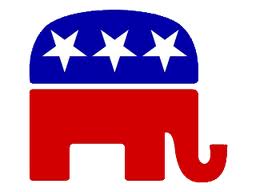Online gambling is now available in most countries in the world but in the United States just three states offer the ability to gamble online. In addition, the gambling landscape throughout America is changing rapidly with casinos in nearly every state. These topics have been 'hot button' items for many stories in 2014, but it doesn't end there. Hartley Henderson lists his top 10 gambling stories of the year. This is first of two parts. To read the top 5 gambling stories in North America and see Harltey's #1 gambling story of 2014, click here.

10. The Midterm Election and the effect on gambling
When the Republicans humiliated the Democrats in the midterm elections and seized control of the Senate it likely spelled doom for online gambling expansion in the U.S. for the near future. Many Republicans are owing to Sheldon Adelson who is campaigning against online gambling (see part 2) and many state Governors and legislators are likely going to ensure that nothing gets done on their watch. Florida, for example, seemed interested in foraying into online gambling in the past, but Rick Scott easily won there and Scott is a close friend and supporter of Adelson. More than likely if the state legislators in Florida put an online gambling bill in front of Governor Scott he will pull a Chris Christie and veto the legislation. In Illinois Bruce Rauner defeated Pat Quinn and Rauner is known to be strongly opposed to internet gambling. Rauner apparently has less concern with land based casinos but wants no part of online gambling. As Well Nikki Haley, Rick Perry and Mike Pence, along with Scott, all easily won as governor in their state and all have backed the Graham/Chaffetz bill. This piece of legislation aims to nullify the opinions of the DoJ which ruled the Wire Act only applies to sports betting and in turn would make all forms of onlinee gambling illegal in the U.S.
Perhaps more concerning than the number of governors who oppose online gambling that won is the fact that the Senate is now controlled by the Republicans and Mitch McConnell, who takes over as Senate Majority Leader. It's uncertain where McConnell stands on gambling personally, although for a time he seemed to support the legalization of online poker to help Twin Spires in his home state of Kentucky. But it's almost certain that McConnell  will not be as friendly to gambling interests as Harry Reid (R-Nevada) was. This is a problem for online gamblers because in the past online gambling legislation which passed the House was stopped in the Senate including the original Gambling Prohibition Act that was introduced by John Kyl. If the new Senate leader is uninterested in fighting against such legislation it's conceivable that some anti=gambling bills will get passed by both the House and Senate leaving the final gambling decisions to lame-duck President Barack Obama. And there's no question that Lindsay Graham will be pushing the Senate to pass the bill he and Chaffetz have sponsored. Moreover with Reid no longer the House leader there is speculation that he may be willing to work with Adelson to get the Restoration of the Wire Act bill passed in exchange for Adelson's support in the next election. There is some belief that Harry Reid is vulnerable and as a back bencher in the Senate he may lose his high profile that keeps his name in the news and pretty much guarantees that state voters cast their ballots for him. With Adelson's endorsement and perhaps financing his chances would be much better in the election. Moreover there is some belief that Reid supports Adelson. Either way online gambling's hopes have taken a huge hit with a Republican now in charge of the Senate.
will not be as friendly to gambling interests as Harry Reid (R-Nevada) was. This is a problem for online gamblers because in the past online gambling legislation which passed the House was stopped in the Senate including the original Gambling Prohibition Act that was introduced by John Kyl. If the new Senate leader is uninterested in fighting against such legislation it's conceivable that some anti=gambling bills will get passed by both the House and Senate leaving the final gambling decisions to lame-duck President Barack Obama. And there's no question that Lindsay Graham will be pushing the Senate to pass the bill he and Chaffetz have sponsored. Moreover with Reid no longer the House leader there is speculation that he may be willing to work with Adelson to get the Restoration of the Wire Act bill passed in exchange for Adelson's support in the next election. There is some belief that Harry Reid is vulnerable and as a back bencher in the Senate he may lose his high profile that keeps his name in the news and pretty much guarantees that state voters cast their ballots for him. With Adelson's endorsement and perhaps financing his chances would be much better in the election. Moreover there is some belief that Reid supports Adelson. Either way online gambling's hopes have taken a huge hit with a Republican now in charge of the Senate.
9. The stabilization of Bitcoin and acceptance by gambling companies
When bitcoin first came about most people including myself looked at the virtual currency as a joke. After all how could a computer generated code replace legal tender? But most people, like myself, were kicking themselves for not buying some bitcoins at about a buck apiece 3 years ago after the price on them went as high as USD$1,200 each last year. There's no question that the virtual currency has had some peaks and valleys along the way including the closure of Mt. Gox and the loss of hundreds of millions of dollars in bitcoins but the currency has since somewhat stabilized and settled  down to around $300-400 each. What is more intriguing is that real companies are now starting to accept bitcoin as a payment for goods and services including Dell, Overstock.com, TigerDirect, Reed Jewelers and Microsoft for certain products. As well certain franchisees have accepted bitcoin as payment for their product including a Holiday Inn and Tesla dealer which made the news as a result of their decisions. But gambling is where bitcoin could really make a difference and bitcoin was all over the news in 2014 when 2 Las Vegas casinos, the D Las Vegas Hotel and Casino and the Golden Gate hotel, announced they would be accepting bitcoin for hotel reservations and concessions. You still aren't able to use bitcoin to gamble there but the fact they were accepting the currency at all was seen as a big first step.
down to around $300-400 each. What is more intriguing is that real companies are now starting to accept bitcoin as a payment for goods and services including Dell, Overstock.com, TigerDirect, Reed Jewelers and Microsoft for certain products. As well certain franchisees have accepted bitcoin as payment for their product including a Holiday Inn and Tesla dealer which made the news as a result of their decisions. But gambling is where bitcoin could really make a difference and bitcoin was all over the news in 2014 when 2 Las Vegas casinos, the D Las Vegas Hotel and Casino and the Golden Gate hotel, announced they would be accepting bitcoin for hotel reservations and concessions. You still aren't able to use bitcoin to gamble there but the fact they were accepting the currency at all was seen as a big first step.
More significantly for bettors, 5Dimes, an OSGA Elite-rated sportsbook, joined Switch Poker in 2014 to become the only non-bitcoin only betting sites on the web. Switch Poker has been very happy with the action it received from bitcoin customers and 5Dimes apparently sees bitcoin as a huge opportunity for payment processing since bitcoins are untraceable and anonymous. 5Dimes may have felt this move was necessary since more and more banks have been blocking transactions to offshore sportsbooks but other gambling sites, particularly those that cater to the U.S. market are closely watching 5Dimes to see if the venture is successful. SportsBettingOnline recently started taking bitcoins and others are rumored to be not far behind. Satoshi Dice, Seals with Clubs and VIP Bet are still the largest bitcoin betting sites, but if bitcoin becomes viewed as a real commodity worth investing in then it could change the online gambling industry significantly.
8. Antigua's new desperate attempt to settle with the U.S.
For those who think the WTO trade dispute between Antigua and the U.S. has been going on forever they are right. The issue dates back to 2003 when Antigua filed a grievance with the World Trade Organization claiming the U.S. was violating its GATS obligation to provide remote gambling services to the country from fellow WTO partners. The suit was seen as a longshot but in the end the WTO courts ruled in favor of Antigua. The appellate court upheld the original decision and in 2007 the U.S. was told to pay Antigua $21 million a year in trade concessions which is what the courts deemed Antigua would h ave received if remote horse racing was permitted in the country. The amount was far less than what Antigua would have liked but the amount was irrelevant because the U.S. clearly never had any intentions of paying Antigua a dime for a ruling they believed to be wrong. What was more important was the decision by the WTO courts which allowed Antigua to use the settlement in TRIPS, i.e. by producing royalty free copies of U.S. intellectual property such as music, software and videos. That decision could have made the U.S. government squirm but Antigua continually refused to use that option for reasons of their own, although we later learned they were afraid of possible actions by the U.S. on Antigua's tourist industry as a form of retribution. As years passed Antigua became a fading concern to U.S. Trade Representatives as Antigua's gambling economy dwindled and the whole issue seemed to be behind them.
ave received if remote horse racing was permitted in the country. The amount was far less than what Antigua would have liked but the amount was irrelevant because the U.S. clearly never had any intentions of paying Antigua a dime for a ruling they believed to be wrong. What was more important was the decision by the WTO courts which allowed Antigua to use the settlement in TRIPS, i.e. by producing royalty free copies of U.S. intellectual property such as music, software and videos. That decision could have made the U.S. government squirm but Antigua continually refused to use that option for reasons of their own, although we later learned they were afraid of possible actions by the U.S. on Antigua's tourist industry as a form of retribution. As years passed Antigua became a fading concern to U.S. Trade Representatives as Antigua's gambling economy dwindled and the whole issue seemed to be behind them.
Things changed last year when the Antiguan Ambassador Colin Murdoch met with the U.S. Trade Representatives to finally settle the dispute but Murdoch claimed that what the USTR was offering was far less than what was needed to settle the issue so Murdoch announced that it was prepared to finally use the TRIPS settlement and would be setting up a royalty free digital download site to Americans. The USTR didn't seem too concerned and most likely said to Murdoch "go ahead and make my day." The U.S. government already showed that it could seize any dot com websites and they could force ISPs to block any URLs they deemed to be rogue, so the threat was an idle one. The WTO decision granted compensation back to 2006, so the U.S. currently owes Antigua about $168 million but even Antigua knows they'll never see that kind of compensation from the U.S. government.
In 2014 the new Antiguan government of Gaston Browne met with the U.S. government to come up with a settlement they deemed to be fair and one the U.S. could live with. The Antiguan government called the offer "a significant concession" without getting into details but also claimed that it was necessary since the U.S. never made any serious attempts to negotiate a settlement. Typical of the U.S. Trade Representatives they said that they were "disappointed that Antigua characterizes the US as not making any serious settlement offer" and then went on to say they gave the country several options last year but Antigua turned them all down. It's still unclear what the U.S. offered Antigua, although many believe it was some sort of offer to help them attract non U.S. gambling clients (something which Antigua is already able to do), and it's uncertain what Antigua's significant concession is although reports have circulated that they want $100 million in cash or equivalents. All that is certain is that no agreement has been reached yet and it is unlikely the U.S. will ever give a penny to Antigua just on principal alone.
Back in September, Hartley reviewed wether Antigua has a shot at ANY compensation in "Antigua offers a new proposal to end Internet gambling dispute with U.S." Click here to read that eye-opening piece.
7. Adam Silver's shocking announcement on sports betting
One of the more surprising stories of 2014 occurred when NBA Commissioner Adam Silver suggested in a New York Times' op-ed piece that the league's opposition to sports betting was likely ill-advised and that the NBA may want to work with states since they will almost certainly start offering sports betting as a revenue tool anyways. Silver said that he wanted a federal framework for sports betting that would allow states to offer betting on NBA games but only under specific criteria set out in the framework. Dallas Mavericks owner Mark Cuban agreed with Silver saying it was only common sense but the commissioners of the other leagues condemned Silver's comments and suggested that as far as their leagues are concerned, they will never condone legal sports betting, since it leads to game fixing and corruption. Silver caused more shockwaves when he stated that sports betting could actually be a good thing for the leagues:
"If you have a gentleman's bet or a small wager on any kind of sports contest, it makes you that much more engaged in it. That's where we're going to see it pay dividends. If people are watching a game and clicking to bet on their smartphones, which is what people are doing in the United Kingdom right now, then it's much more likely you're going to stay tuned for a long time."
Silver's statements led to commentaries from various publications and sports programs, some agreeing with his comments and others condemning them but more importantly it resulted in a discussion by all parties on the merits of Silver's comments which is likely what Silver was really after in the first place when he gave his opinion in the op-ed piece. After all if the topic is on the table it has to be addressed.
Hartley examined this topic in-depth in his breaking November story, "What does Adam Silver's stance on legalizing sports betting mean for the future?"
In the meantime Silver has tried to encourage Chris Christie to go to Washington and discuss PASPA with legislators there and he would be happy to support Christie in that venture. Christie refused but Silver's statement does give the governor some ammunition when the sports leagues and DoJ file their briefs in January over why they believe PASPA must not be overturned. Which takes us to the #6 gambling story of 2014 in North America.
6. Another defeat for New Jersey in its quest for sports betting
Ever since the financial crisis hit the United States, New Jersey has been trying to get PASPA overturned. Struggling for cash, New Jersey decided that if they could get sports betting legalized it could help turn around the casinos and racetracks in the state which have been struggling to survive. The belief is that sports bettors who were wagering offshore or with illegal bookmakers would bet with legal casinos if given the choice. Moreover, state legislators  believe that East Coast sports bettors who travel to Las Vegas to wager on major sporting events would go to the closer venues in Atlantic City, if that option existed, where they could get the same ambiance but without the travel time or cost. The road to legal sports betting, however, has been a tumultuous one for the state. Senator Ray Lesniak who has championed the cause has worked with iMEGA (the now defunct lobby group) as well as other state legislators to get the courts to overturn the law, at least for the state of New Jersey, but he has had no luck. The strong presence of the sports leagues who oppose overturning PASPA and the disinterest of the courts to change a federal law has resulted in the state being stonewalled at every turn. Moreover, Lesniak has had to deal with Governor Chris Christie who has waffled on sports betting ever since he took office. At first Christie opposed all forms of expanded betting when it appeared he was going to make a presidential run but then he supported sports betting when the New Jersey electorate voted for it in a referendum and Christie decided he would not run for president. Even when the Third Circuit Court of Appeals ruled against New Jersey in 2012 Christie said he would defy the ruling and find a way to offer sports betting anyways. "If someone wants to stop us, let them try to stop us," Christie said at a press conference that year.
believe that East Coast sports bettors who travel to Las Vegas to wager on major sporting events would go to the closer venues in Atlantic City, if that option existed, where they could get the same ambiance but without the travel time or cost. The road to legal sports betting, however, has been a tumultuous one for the state. Senator Ray Lesniak who has championed the cause has worked with iMEGA (the now defunct lobby group) as well as other state legislators to get the courts to overturn the law, at least for the state of New Jersey, but he has had no luck. The strong presence of the sports leagues who oppose overturning PASPA and the disinterest of the courts to change a federal law has resulted in the state being stonewalled at every turn. Moreover, Lesniak has had to deal with Governor Chris Christie who has waffled on sports betting ever since he took office. At first Christie opposed all forms of expanded betting when it appeared he was going to make a presidential run but then he supported sports betting when the New Jersey electorate voted for it in a referendum and Christie decided he would not run for president. Even when the Third Circuit Court of Appeals ruled against New Jersey in 2012 Christie said he would defy the ruling and find a way to offer sports betting anyways. "If someone wants to stop us, let them try to stop us," Christie said at a press conference that year.
In 2014 Lesniak found a loophole in the law that would allow New Jersey to offer sports betting. Rather than challenging PASPA and getting the federal law overturned New Jersey simply had to repeal a prohibition written into the state's law that forbids casinos and racetracks from offering sports betting. If the casinos and racetracks then offered sports betting it would be left up to the federal government to try and actually stop them from doing so. And as the federal government showed with its inaction when Colorado and Washington repealed its prohibition on cannibas possession, New Jersey legislators believed the federal government likely would have deemed it an issue not worth challenging especially since sports betting was already legal in other states. The bill S2250 was put in front of Christie in June and instead of doing as he said he would 2 years earlier, Christie vetoed the bill and announced:
"Ignoring federal law, rather than working to reform federal standards, is counter to our democratic traditions and inconsistent with the Constitutional values I have sworn to defend and protect."
In my mind (and many others in the industry), Christie had become the favorite to win the Republican nomination and as such was not willing to violate a federal law regardless of what he said in the past.
Nevertheless Christie gave in later when he faced stiff opposition over that decision and in October signed the bill. Immediately Monmouth Park said it would be offering betting on NFL games. That never occurred, however, because a judge issued a restraining order against Monmouth Park from offering sports betting until a hearing could be held in January and as such everything has been put on hold . . . again. There is a strong belief that Christie was told that the court would issue the restraining order which is why he agreed to sign the law, i.e. appear to be strong knowing full well it would go nowhere. Since that time Monmouth Park has announced it would be venturing into fantasy sports instead, which neither the federal courts nor Christie have any objections to.
To read the top 5 gambling stories in North America and see Harltey's #1 gambling story of 2014, click here.






































